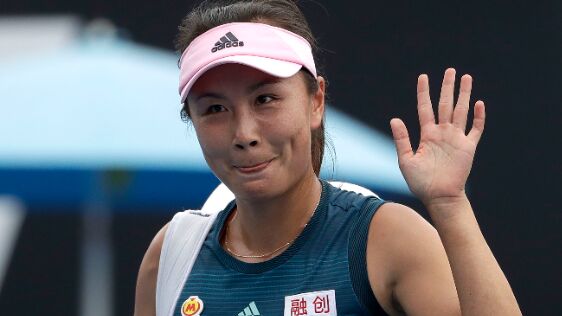A 'publicity stunt'

Following a growing international outcry over her abrupt disappearance, Chinese tennis star Peng Shuai finally appeared before the world in a video call with the International Olympics Committee president Thomas Bach. Bach, for whatever reason, was convinced by Peng that not only was she safe at home, she was also taking some time off voluntarily and that she would like others to respect her privacy. So, with that conveniently timed interview, surely the world can rest easy knowing that nothing untoward is happening towards the three-time Olympian. Well, not so fast. As has always been the case, such videos and photographic bits of evidence are always a mainstay of authoritarian governments determined to show that everything is fine and that they are in the right. Consider the case of Dubai Princess Latifa who was attempted to escape her father, the Sheikh of Dubai and was forcibly brought back to her country and imprisoned. Just like Peng, videos and photographic evidence were used to 'prove' that the princess was safe and sound at home. And much like Peng, there was no way of telling if such scenes of normality were organic or whether they were forced upon the individual in question to put on a mask of normalcy. Concerns over Peng's safety are not unwarranted after all. Public figures disappearing in China is not an uncommon occurrence. Public figures like Alibaba founder Jack Ma have been forced to duck out of sight after antagonising the ruling elites in Beijing. Like Ma, Peng crossed a red line in regards to the Chinese Communist Party. By accusing former Vice Premier Zhang Gaoli of sexual harassment, she knowingly or unknowingly questioned the authority of the CCP. This is not just a gross, overly-paranoid reading of the situation. Consider the fact that most social movements including the 'Me too' movements have fizzled out in China. This is because the party considers such movements an indirect threat to its absolute authority. Peng is not just standing and accusing another high-profile public figure of sexual impropriety, she is accusing a former member of the Politburo Standing Committee, China's top ruling body. Given the circumstances and the fact that Peng and her allegations are being actively censored by Chinese authorities, it seems unlikely that her quest for 'Me too' justice would succeed even if she is freely allowed to move about in public at a later date. China, of course, insists that the matter is being overblown and that it should not be a diplomatic matter. Despite its cool attitude in refuting any allegations of wrongdoing, China undeniably understands that it is in a pressure situation. The Women's Tennis Association has already threatened to end its multi-million-dollar relationship with China over the fate of Peng and the WTA has been unambiguous in saying that a couple of videos prove nothing in regards to her safety. It is not the only organisation to make its concerns clear. From the UN to the Human Rights Watch, criticism for China and concern for Peng has been widespread. Governments such as the US government have also stepped in to express their concerns. The world community also has another way to make a belligerent Beijing pay attention — the threat to boycott the upcoming Olympics in China. The call to do so is not new but it has gained fresh impetus in recent days after the Peng incident. But this isn't just about China's actions. As noted at the beginning, the IOC was quite eager to accept the happy and fluffy version of events that Peng was presenting or being made to present on the video call with Thomas Bach. Well, unsurprisingly, this willingness to be gullible has not endeared the IOC to its many critics. The IOC's 'quiet diplomacy' is once again in the spotlight of giving too much of a free pass to authoritarian countries and sometimes even helping them put on a 'clean' public face. This time as well, critics have alleged that the phone call with Peng was just a 'publicity stunt' for Beijing that the IOC willingly provided to defuse the situation and potentially avert calls to delay or relocate the Beijing Olympics. From Russia to Mexico, the IOC has a rather unfortunate record of providing authoritarian regimes propaganda victories in the form of hosting the Olympic games. All the while, the IOC has maintained that it is not a world government and continued to deflect any and all criticism of its dealings with authoritarian governments. The problem with such an approach is that it gives nations like China a free pass to ignore international criticism being directed towards it. As the WTA has understood, the only way to really compel China to take anything seriously is to present a serious threat to its interests. By threatening to end its relationship with China regardless of the resulting financial loss, the WTA has at least forced China to take note and attempt to control the growing Peng controversy. If the IOC was serious about ensuring the safety of the three-time Olympian Peng Shuai, it would not simply attempt to present the video call as evidence of her safety. The situation afforded the IOC a unique opportunity to turn around its unfortunate image as an enabler of dictatorial regimes but, for whatever reason, it did not, likely impeding any real effort to hold China and its leadership accountable in this case.



